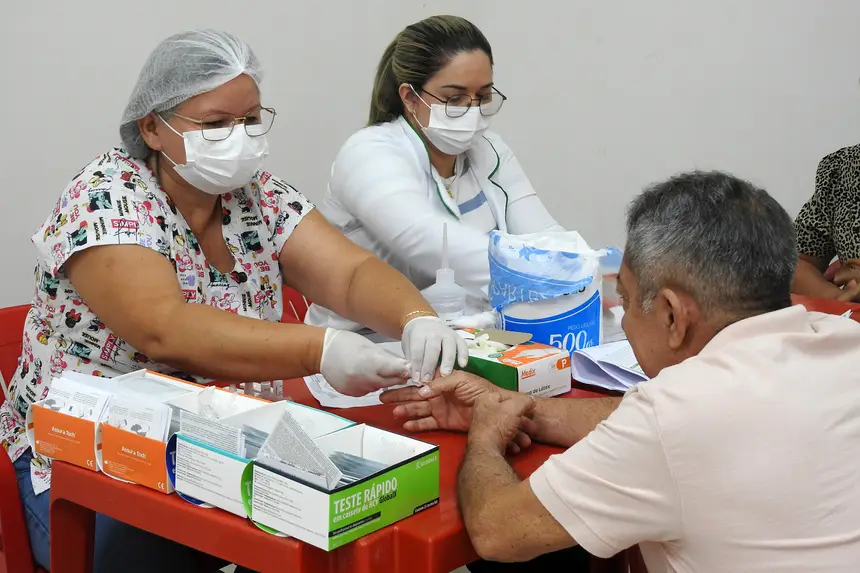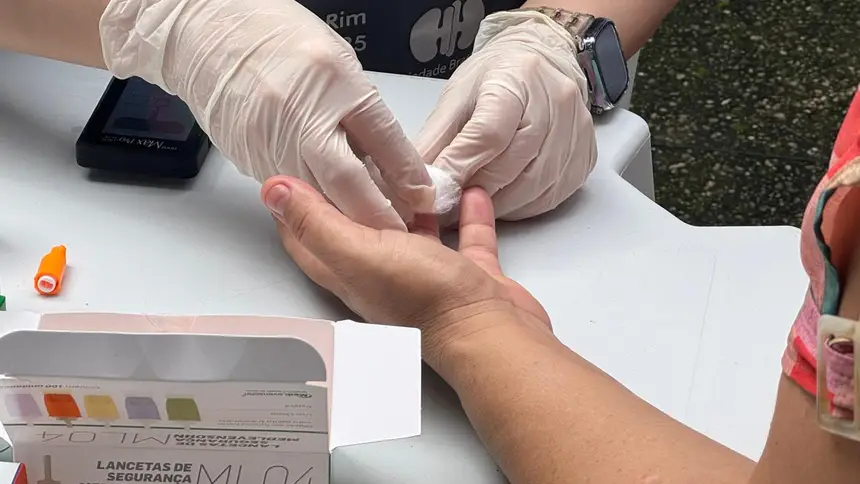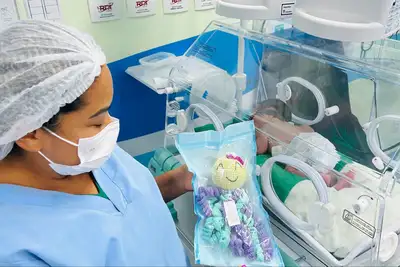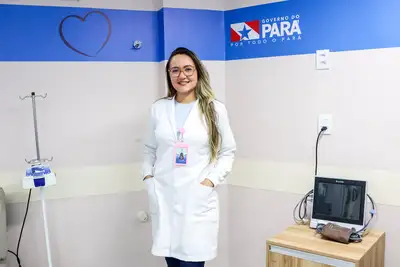Sespa advises the population to prevent and treat diabetes through the SUS
The latest data indicates that more than 460,000 people in Pará are registered as diabetic
Celebrated every year on June 26, National Diabetes Combat Day emphasizes the alert for the importance of prevention and guidance to the population about adherence to the treatment available for free through the Unified Health System (SUS), associated with changes in habits and lifestyle.
According to the latest data from the Health Information System for Primary Care (Sisab), from the Ministry of Health, 460,281 people in Pará are registered as diabetic.
Between January and May of this year, data from the SUS Hospital Information System (SIH/SUS), from the Ministry of Health, indicate that there were 2,360 hospitalizations in Pará due to complications caused by diabetes, of which 1,284 were male and 1,076 were female. The number does not reflect the quantity of cases, as the same person may have been hospitalized more than once due to the consequences caused by the disease.
Regarding age groups, the most common classifications for hospitalizations were as follows: 60 to 69 years; 50 to 59 years; and 70 to 79 years. All age groups are affected, especially women between 55 and 59 years and men between 60 and 64 years.
In this sense, the State Department of Public Health (Sespa) recommends that the population seek Basic Health Units (UBS), which offer guidance to reduce diabetes complications associated with other risk factors, such as smoking, physical inactivity, inadequate diet, overweight, and obesity.
Diabetes is a chronic and incurable condition in which the body does not produce enough insulin or cannot effectively use the insulin it produces. Insulin, which is a hormone secreted by the pancreas, is essential for converting sugar, starch, and other foods into energy. Without it, blood glucose levels rise, a condition called hyperglycemia, which is the main characteristic of diabetes.
As it is a progressive disease, if not properly treated, it can lead to complications such as cardiovascular diseases, kidney failure, blindness, and even amputation of limbs, such as fingers, feet, and legs.
The service provides information for the regular and systematic acquisition of free medications for all registered patients. To access it, the patient must have a consultation with the clinical doctor at the UBS.
Risk factors - To guide and train professionals from the Basic Health Units on the flow of care for patients with diabetes, the team from the Coordination of Non-Communicable Chronic Diseases (CDCNT) of Sespa has been conducting activities in Belém and municipalities in the interior of the State, which also included technical assistance for the implementation of actions and programs, supporting the Municipal Health Departments.
“These activities alert to the severity of the disease associated with other risk factors, such as hypertension, physical inactivity, inadequate diet, obesity, and smoking, which generate economic and social impacts. Thus, it becomes necessary and permanent to articulate intervention strategies for prevention, early diagnosis, and control of diabetes,” explained Sílvia Corrêa, state coordinator of the CDCNT of Sespa.
She reminds that the actions also encourage the adoption of a healthy and balanced diet and the practice of physical activities, through training for professionals in municipalities on the Dietary Guidelines for the Brazilian Population, the Health Academy Program, the Healthy Growth Program, and the Health in School Program. These are initiatives of the Federal Government, guided and monitored by Sespa and executed by the Municipal Health Departments.
According to Sílvia Corrêa, during the training, the flow of care for diabetic patients is always clarified, which begins at the Health Units with the Primary Care Teams, where free actions for prevention, detection, control, and medication treatment, including insulin, are offered.
If the patient presents complications at this stage of treatment, and depending on the diagnosis, they may be referred to medium and high complexity units that maintain reference care in Endocrinology.
National Diabetes Combat Day was created by the Ministry of Health as a way to alert to the condition that affects 10.2% of the Brazilian population over 18 years old, according to data from the Vigitel 2023 survey (Surveillance of Risk and Protection Factors for Chronic Diseases by Telephone Survey).
Text: Mozart Lira (Sespa)











